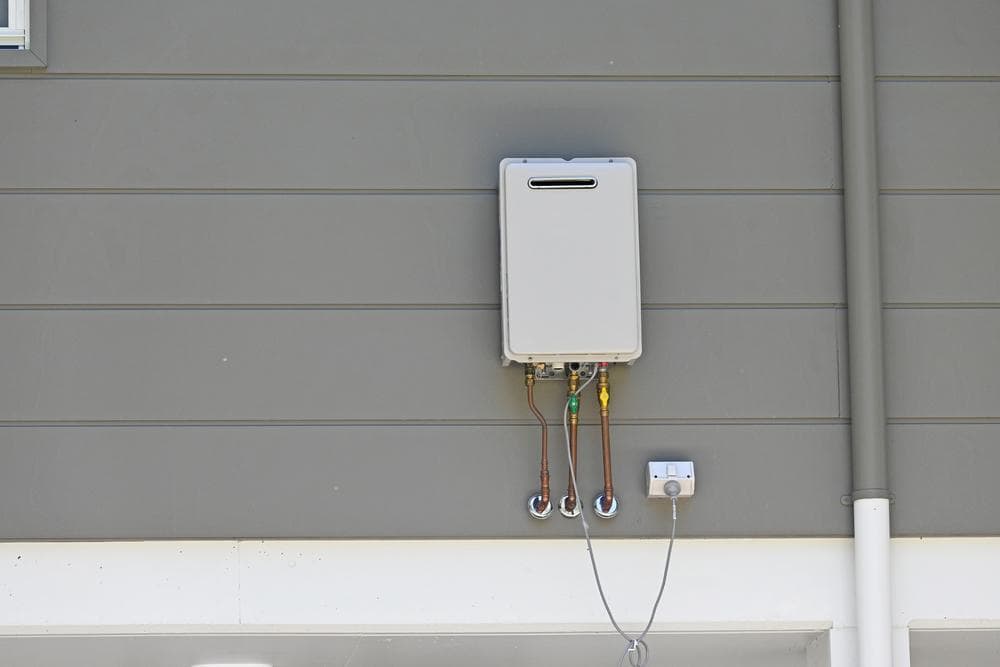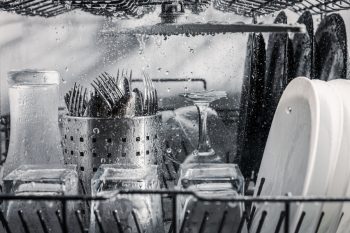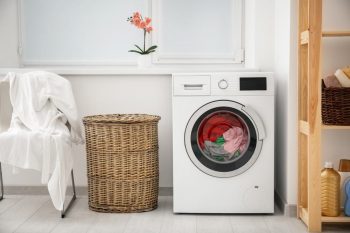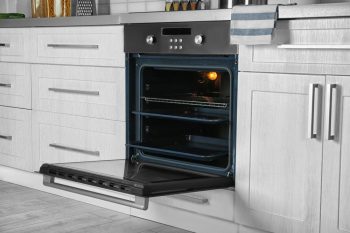
A condensing tankless water heater is a modern, efficient, and environmentally friendly method of heating water for your home. It’s a revolutionary technology that has been gaining popularity due to its energy efficiency, space-saving design, and long lifespan. But what exactly is a condensing tankless water heater, and how does it differ from other types of water heaters? In this comprehensive guide, we’ll take an in-depth look at condensing tankless water heaters, their benefits, drawbacks, and everything else you need to know.
A condensing tankless water heater is a type of water heater that uses condensing technology to heat water on demand, ensuring high energy efficiency and lower operating costs. It has two heat exchangers, one of which uses heat from the exhaust gas to preheat incoming cold water, making it more efficient than traditional water heaters. These heaters are compact, provide a continuous hot water supply, and have a longer lifespan, making them a popular choice for modern homes.
Understanding the Basics of a Condensing Tankless Water Heater
A condensing tankless water heater, as the name suggests, is a type of water heater that uses condensing technology to increase energy efficiency and reduce heat loss. Unlike traditional tank-style water heaters that store and constantly heat a large volume of water, tankless water heaters heat water on demand, eliminating the need for standby energy consumption.
Condensing tankless water heaters have two heat exchangers, while non-condensing models only have one. The extra heat exchanger in condensing tankless water heaters uses heat from the exhaust gas to preheat the inflowing cold water, making them more energy-efficient and producing more hot water than non-condensing heaters.
The Benefits of Installing a Condensing Tankless Water Heater
Installing a condensing tankless water heater in your home offers several key benefits:
- Higher Energy Efficiency: Condensing tankless water heaters have an efficiency of around 98%, meaning they capture and reuse the residual exhaust heat, resulting in less energy wastage compared to non-condensing units with efficiencies around 80% .
- Lower Operating Costs: Due to their higher energy efficiency, condensing tankless water heaters can help reduce your utility bills.
- Space-Saving: These water heaters are compact and can be mounted in small or tight spaces, both inside and outside your home, saving valuable space compared to traditional tank-style water heaters.
- Continuous Hot Water Supply: Condensing tankless water heaters provide an endless supply of hot water on demand, ensuring you never run out of hot water during showers or while washing dishes.
- Longer Lifespan: On average, tankless water heaters last five to 10 years longer than traditional tank water heaters, with proper maintenance providing up to 20 years of use.
- Environmentally Friendly: By using less energy and reducing heat wastage, condensing tankless water heaters contribute to a lower carbon footprint.
- Cost-Effective Venting Materials: Since the exhaust gas from a condensing tankless water heater is cooler, it doesn’t require expensive venting materials like non-condensing units. A standard PVC pipe is often used, as it can withstand the heat and corrosiveness of the vapor.
- Higher Flow Rates: Condensing tankless water heaters offer higher flow rates compared to non-condensing units, ensuring a steady supply of hot water even during high demand.
Potential Drawbacks of a Condensing Tankless Water Heater
While condensing tankless water heaters offer numerous benefits, there are a few potential drawbacks to consider:
- Higher Initial Cost: Condensing tankless water heaters are generally more expensive to purchase and install than non-condensing units or traditional tank-style heaters.
- Inconsistent Water Temperatures: Tankless water heaters, including condensing models, can have inconsistent water temperatures due to their on-demand heating mechanism. In cases of high hot water demand, the water temperature can drop significantly.
- Longer Delivery Time for Hot Water: Tankless water heaters, including condensing models, can take longer to deliver hot water compared to traditional storage-tank water heaters, as it takes time for the unit to heat up the cold water.
- Limited Flow Rates: Tankless water heaters, including condensing models, may have reduced flow rates, which can lead to poor heating efficiency and low-temperature water. In larger homes or for larger families with higher hot water demand, multiple units or a larger tankless water heater may be required.
- Condensate Drainage: Condensing tankless water heaters produce acidic condensate as a byproduct of the heating process, which needs to be drained and neutralized before being released into the environment.
- Maintenance: Condensing tankless water heaters may require more ongoing maintenance compared to non-condensing models.
Making the Right Choice
When deciding whether a condensing tankless water heater is the right choice for your home, consider factors such as energy efficiency, flow rate, venting requirements, upfront cost, installation location and requirements, climate, hot water usage patterns, fuel type, and longevity and maintenance. Consulting with a certified installer can also be helpful in making the decision.
In conclusion, a condensing tankless water heater can be a great choice for homeowners looking for an energy-efficient, space-saving, and long-lasting solution for heating water. Despite the higher upfront cost, the long-term savings and benefits make it a worthwhile investment for many homeowners.
Frequently Asked Questions
How much can I expect to save on my utility bills with a condensing tankless water heater?
The amount you’ll save depends on several factors, including your hot water usage and the energy efficiency of your previous water heater. However, due to their high energy efficiency rate of around 98%, condensing tankless water heaters can potentially save you up to 20% on your energy bills compared to traditional tank-style heaters.
Can I install a condensing tankless water heater myself?
It’s generally recommended to have a certified professional install your condensing tankless water heater. This is due to the complexity of the installation process, which may involve gas line adjustments, venting changes, and dealing with the acidic condensate produced by these units.
What is the average lifespan of a condensing tankless water heater?
On average, condensing tankless water heaters can last between 15 to 20 years with proper maintenance. This is significantly longer than traditional tank-style water heaters, which typically last 10 to 15 years.
Is a condensing tankless water heater suitable for larger homes or families?
Yes, but it may require installing multiple units or a larger tankless water heater to meet the higher hot water demand. Consulting with a certified installer can help determine the best setup for your specific needs.
What type of maintenance does a condensing tankless water heater require?
Regular maintenance for a condensing tankless water heater typically includes flushing the unit to remove mineral deposits, checking and cleaning the air intake and exhaust vents, inspecting the heat exchanger for leaks or damage, and checking and adjusting the gas pressure if necessary. It’s recommended to have a professional perform this maintenance at least once a year.












